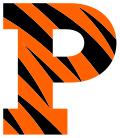
The Harvard Crimson is the nickname of the intercollegiate athletic teams of Harvard College. The school's teams compete in NCAA Division I. As of 2013, there were 42 Division I intercollegiate varsity sports teams for women and men at Harvard, more than at any other NCAA Division I college in the country. Like the other Ivy League colleges, Harvard does not offer athletic scholarships.

The Alabama Crimson Tide refers to the intercollegiate athletic varsity teams that represent the University of Alabama, located in Tuscaloosa. The Crimson Tide teams compete in the National Collegiate Athletic Association's Division I as members of the Southeastern Conference (SEC). The Spirit Squads compete in the UCA and UDA College National Championships.
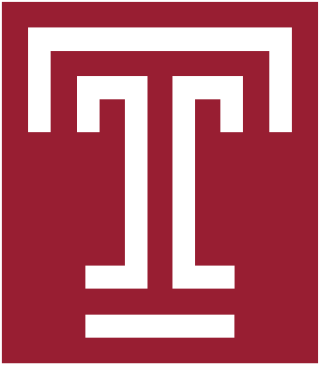
The Temple Owls are the athletic teams that represent Temple University in Philadelphia, Pennsylvania. The current athletic director is Arthur Johnson.

The Cornell Big Red is the informal name of the sports and other competitive teams that represent Cornell University in Ithaca, New York. The university sponsors 37 varsity sports, and several intramural and club teams. Cornell participates in NCAA Division I as part of the Ivy League.

The Dartmouth College Big Green are the varsity and club athletic teams representing Dartmouth College, an American university located in Hanover, New Hampshire. Dartmouth's teams compete at the National Collegiate Athletic Association (NCAA) Division I level as a member of the Ivy League conference, as well as in the ECAC Hockey conference. The college offers 34 varsity teams, 17 club sports, and 24 intramural teams. Sports teams are heavily ingrained in the culture of the college and serve as a social outlet, with 75% of the student body participating in some form of athletics.
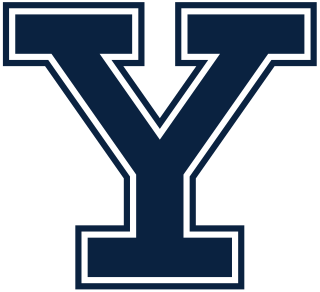
The Yale Bulldogs are the intercollegiate athletic teams that represent Yale University, located in New Haven, Connecticut. The school sponsors 35 varsity sports. The school has won two NCAA national championships in women's fencing, four in men's swimming and diving, 21 in men's golf, one in men's hockey, one in men's lacrosse, and 16 in sailing.

The Columbia University Lions are the collective athletic teams and their members from Columbia University, an Ivy League institution in New York City, United States. The current director of athletics is Peter Pilling.

The Drexel Dragons are the athletic teams of Drexel University in Philadelphia, Pennsylvania. The school's athletic program includes eighteen NCAA Division I sports including nine men's and nine women's teams, with most sports teams competing in the Coastal Athletic Association (CAA). Drexel's athletic department was ranked first in gender equity by U.S. News. The university has demonstrated a high level of student-athlete academic performance, with a 10-year NCAA graduation rate of 91% compared to a national average of 85%.
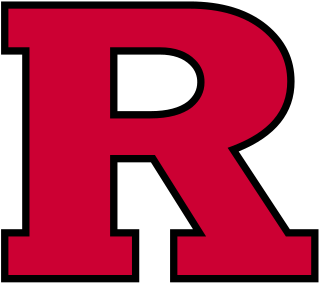
The Rutgers Scarlet Knights are the athletic teams that represent Rutgers University's New Brunswick campus. In sports, Rutgers is famously known for being the "Birthplace of College Football", hosting the first ever intercollegiate football game on November 6, 1869, in which Rutgers defeated a team from the College of New Jersey with a score of 6 runs to 4.
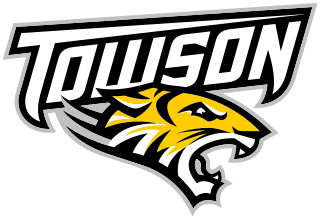
The Towson Tigers, formerly the Towson College Knights, are the athletics teams of Towson University. All of the major athletic teams compete in the Coastal Athletic Association with 19 Division I athletic teams. Gymnastics competes in the EAGL conference, having rejoined the league in the Spring of 2012.

The Navy Midshipmen are the athletic teams that represent the United States Naval Academy. The academy sponsors 36 varsity sports teams and 12 club sport teams. Both men's and women's teams are called Navy Midshipmen or Mids. They participate in the NCAA's Division I, as a non-football member of the Patriot League, a football-only member of the American Athletic Conference in the Football Bowl Subdivision (FBS), and a member of the Collegiate Sprint Football League (men), Eastern Association of Rowing Colleges (men), Eastern Association of Women's Rowing Colleges, Eastern Intercollegiate Gymnastics League (men), Mid-Atlantic Squash Conference (men) and Eastern Intercollegiate Wrestling Association. Navy is also one of approximately 300 members of the Eastern College Athletic Conference (ECAC).

The Middlebury Panthers are the 31 varsity teams of Middlebury College that compete in the New England Small College Athletic Conference. The Panthers lead the NESCAC in total number of national championships, having won 42 team titles since the conference lifted its ban on NCAA play in 1994. Middlebury enjoys national success in soccer, cross country running, field hockey, men's basketball, women's hockey, skiing, men's lacrosse and women's lacrosse, and fields 31 varsity NCAA teams and several competitive club teams including a sailing team (MCSC), a crew team, a water polo team, an ultimate frisbee team, and a rugby team. Since 2000, Middlebury's varsity squads have won 84 NESCAC titles. Currently, 28% of students participate in varsity sports.

NYU Violets is the nickname of the sports teams and other competitive teams at New York University. The school colors are purple and white. Although officially known as the Violets, the school mascot is a bobcat. The Violets compete as a member of NCAA Division III in the University Athletic Association conference. The university sponsors 23 varsity sports, as well as club teams and intramural sports.

The Furman Paladins are the varsity athletic teams representing Furman University in Greenville, South Carolina, in intercollegiate athletics.

The Brown Bears are the sports teams that represent Brown University, an American university located in Providence, Rhode Island. The Bears are part of the Ivy League conference. Brown's mascot is Bruno. Both the men's and women's teams share the name, competing in 34 National Collegiate Athletic Association (NCAA) Division I sports. In football, the Bears, along with all other the Ivy League teams, compete in the Football Championship Subdivision (FCS).

The Princeton Tigers football program represents Princeton University and competes at the National Collegiate Athletic Association (NCAA) Division I Football Championship Subdivision (FCS) level as a member of the Ivy League. Princeton's football program—along with the football program at nearby Rutgers University—began in 1869 with a contest that is often regarded as the beginnings of American football.

The Princeton University Rugby Football Club is the college rugby team of Princeton University. The team currently competes in the Ivy Rugby Conference, an annual rugby union competition played among the eight member schools of the Ivy League.

Located in Los Angeles, Occidental College competes in the Southern California Intercollegiate Athletic Conference (SCIAC) at the NCAA's Division III level. Approximately 25 percent of all students play a varsity sport, and nearly half of all students participate in all athletics activities combined.

The Princeton–Rutgers rivalry is a college rivalry in athletics between the Tigers of Princeton University and Scarlet Knights of Rutgers University – New Brunswick, both of which are located in New Jersey. The rivalry dates back to the first college football game in history in 1869. Although the football series ended in 1980 due to the two schools going in different directions with their football programs, the rivalry has continued in other sports, primarily in men's basketball.
